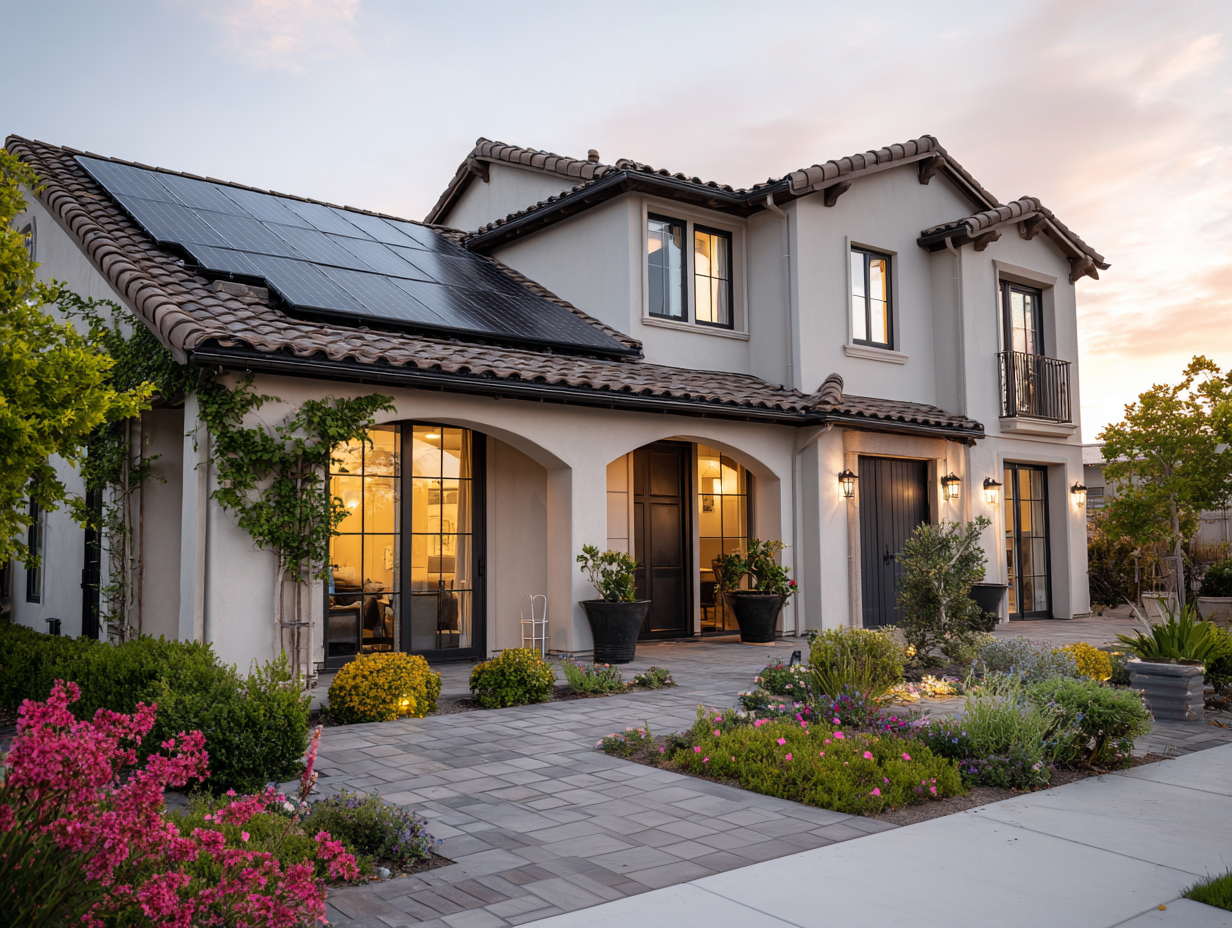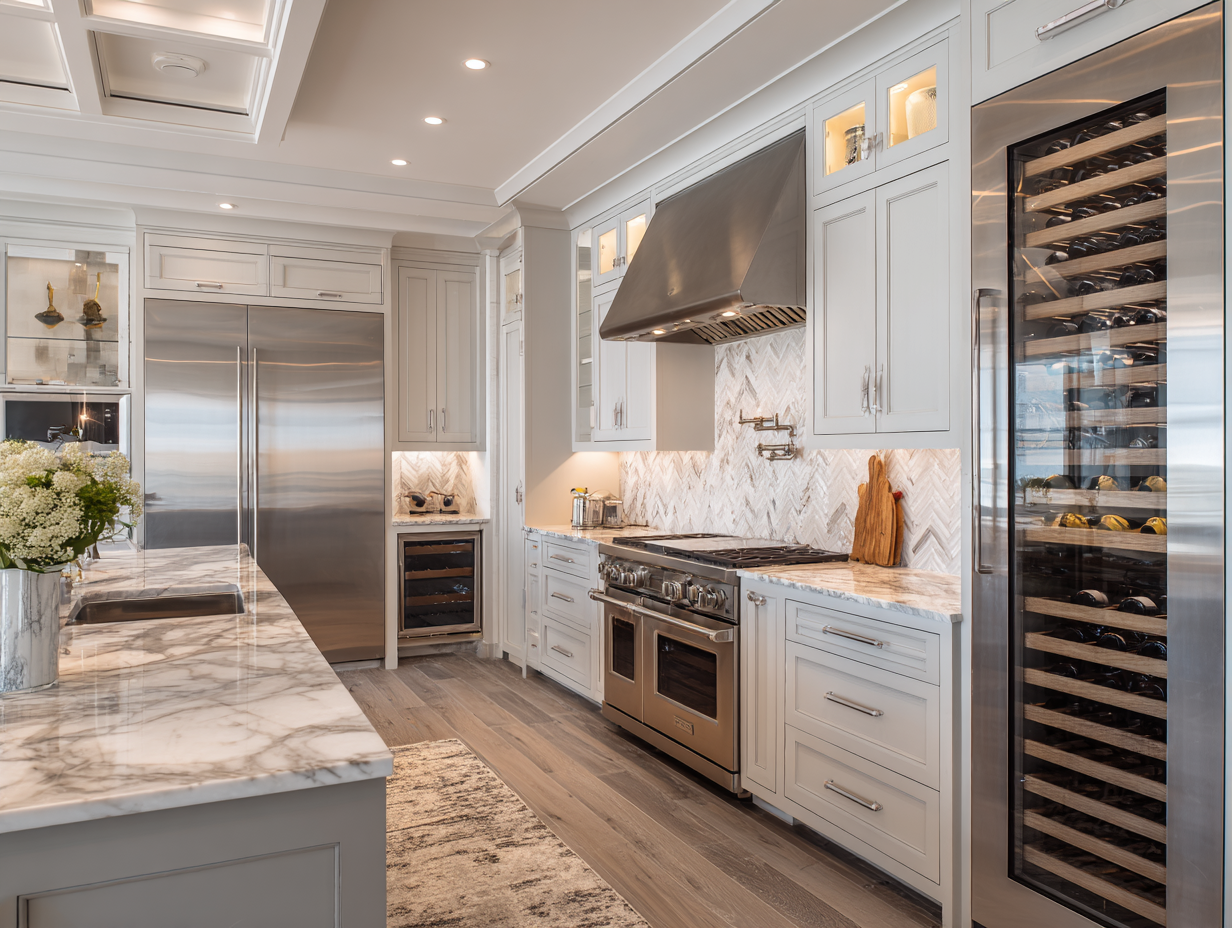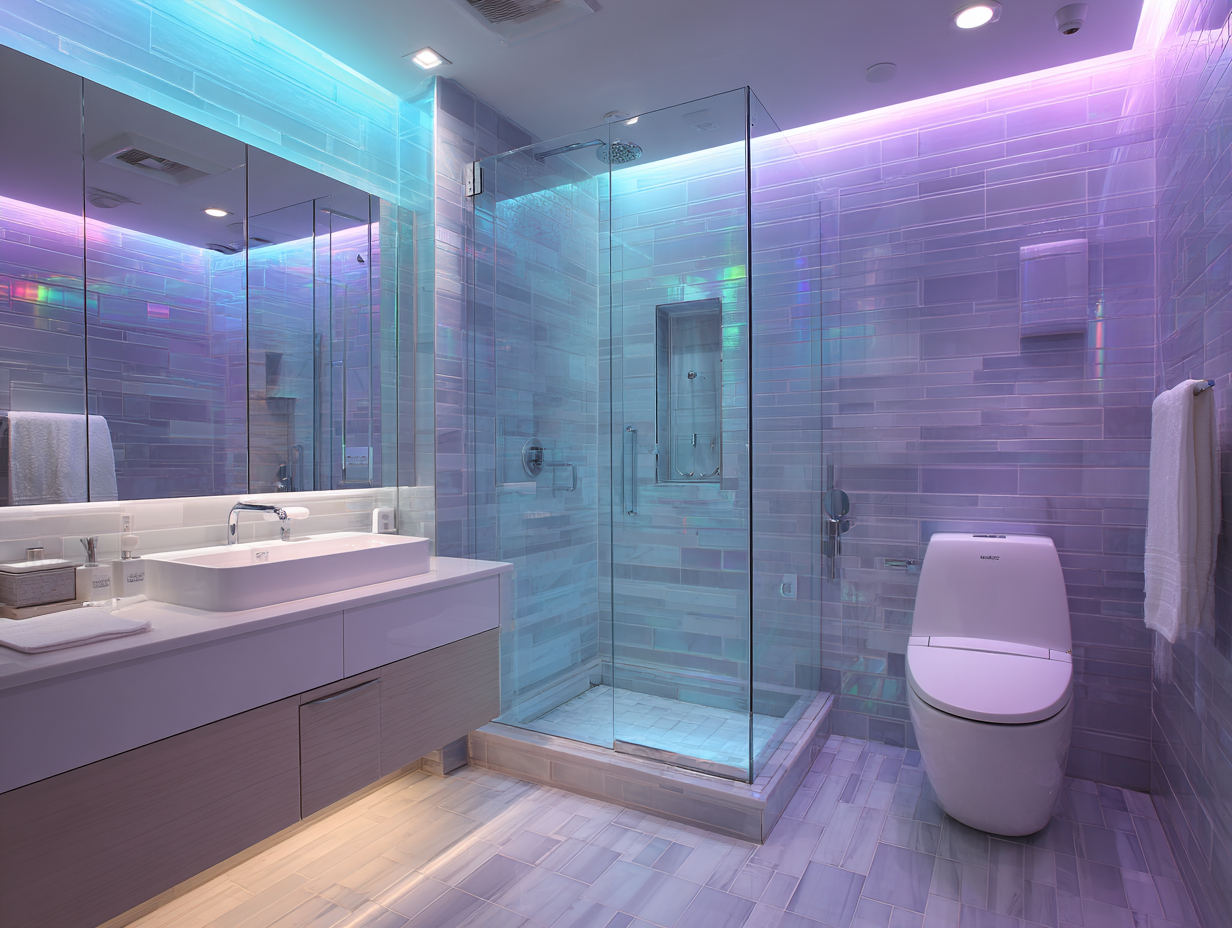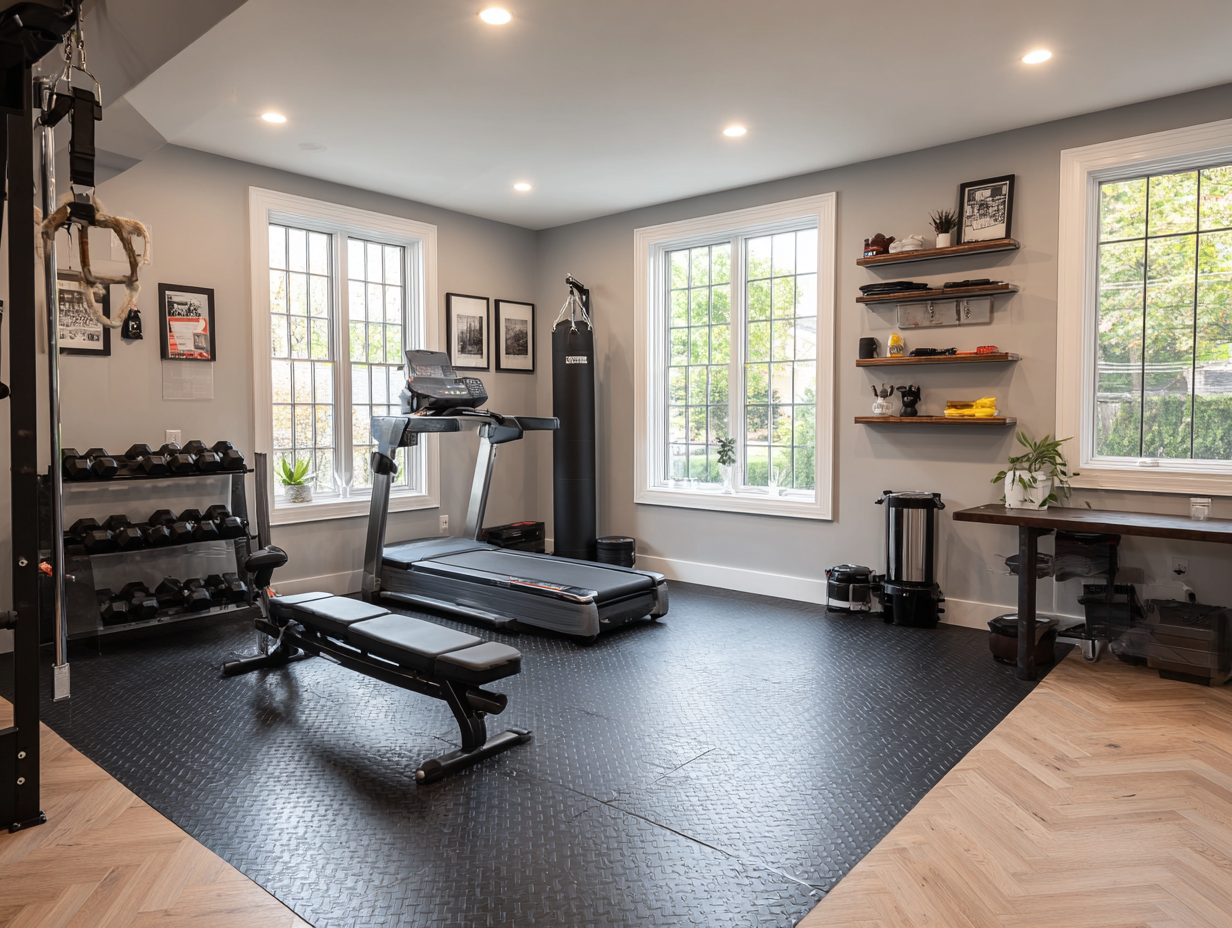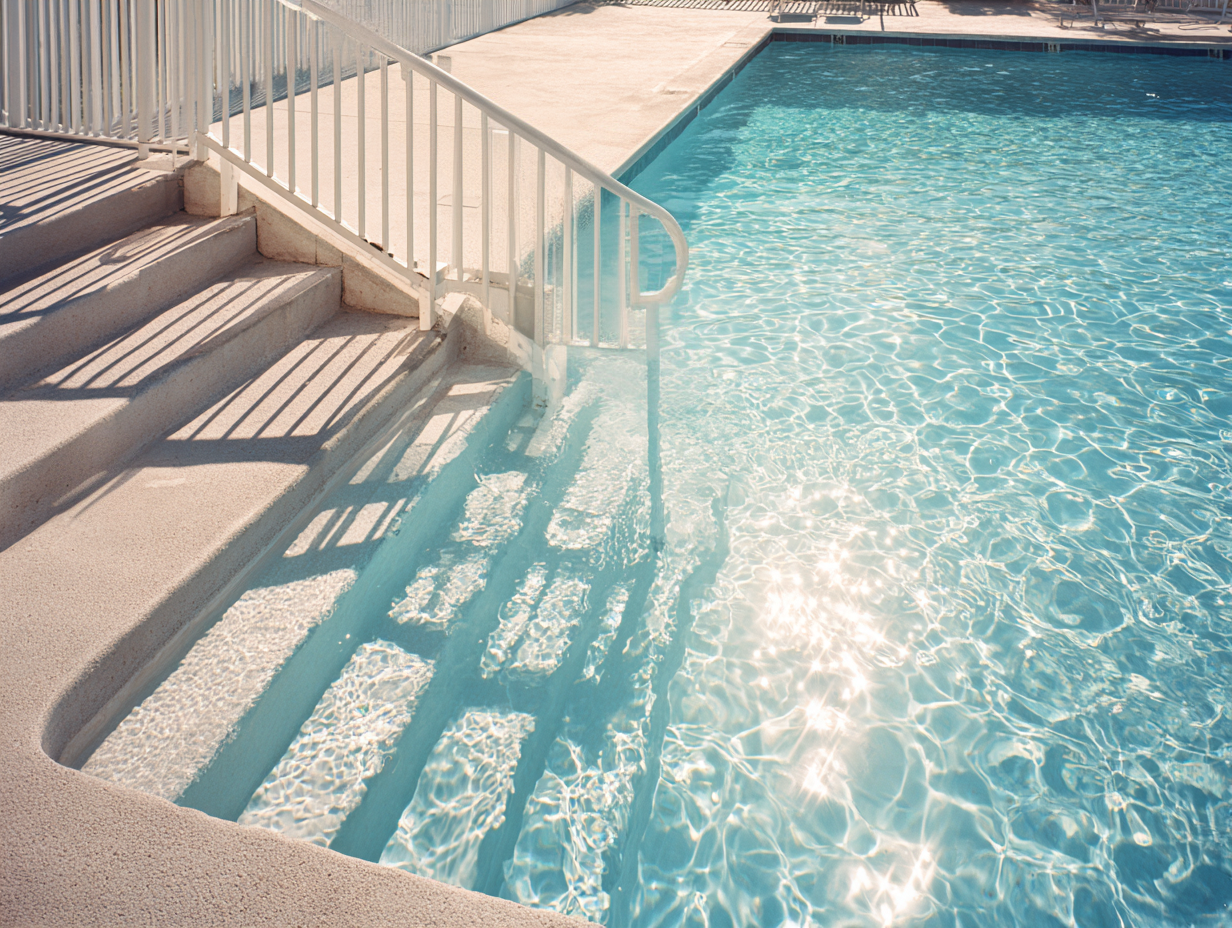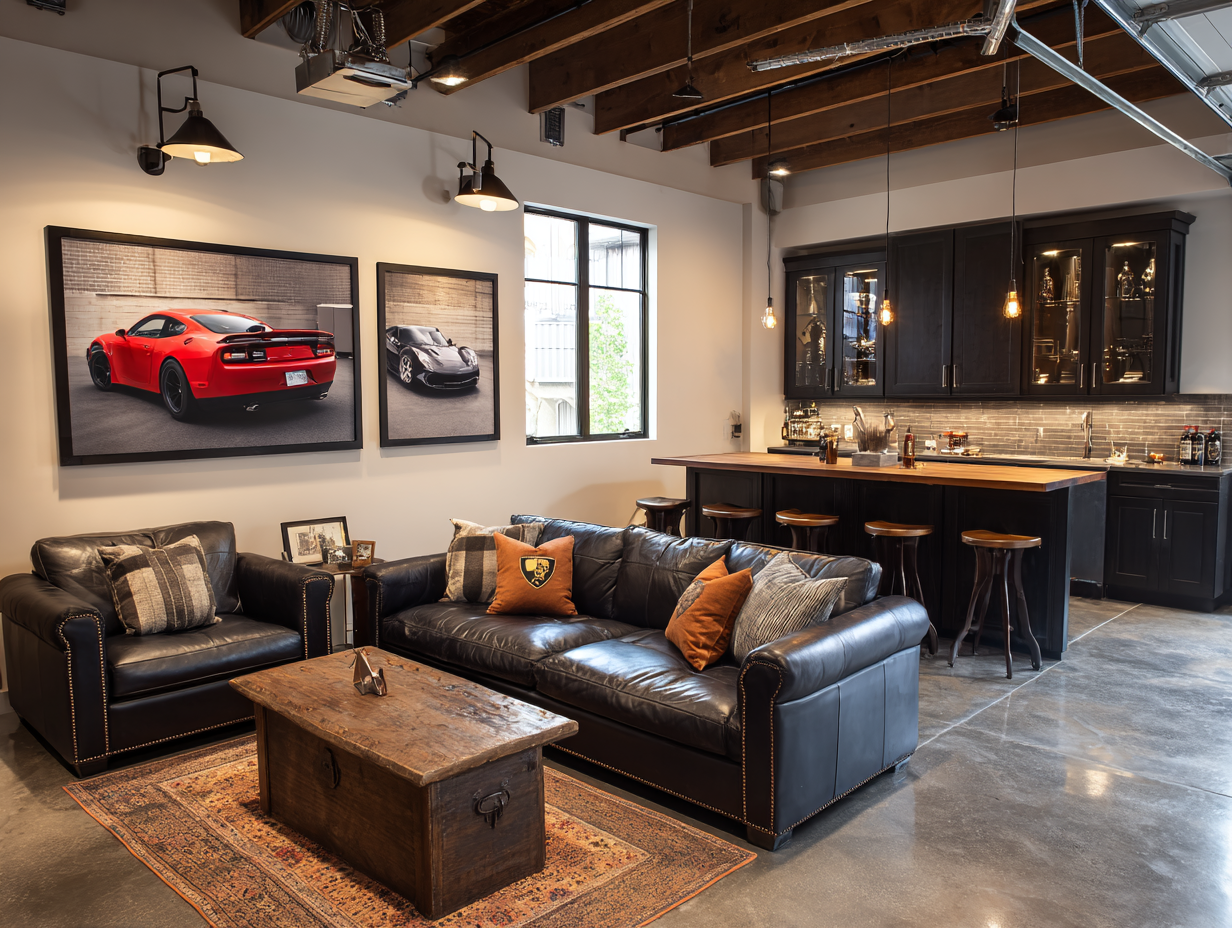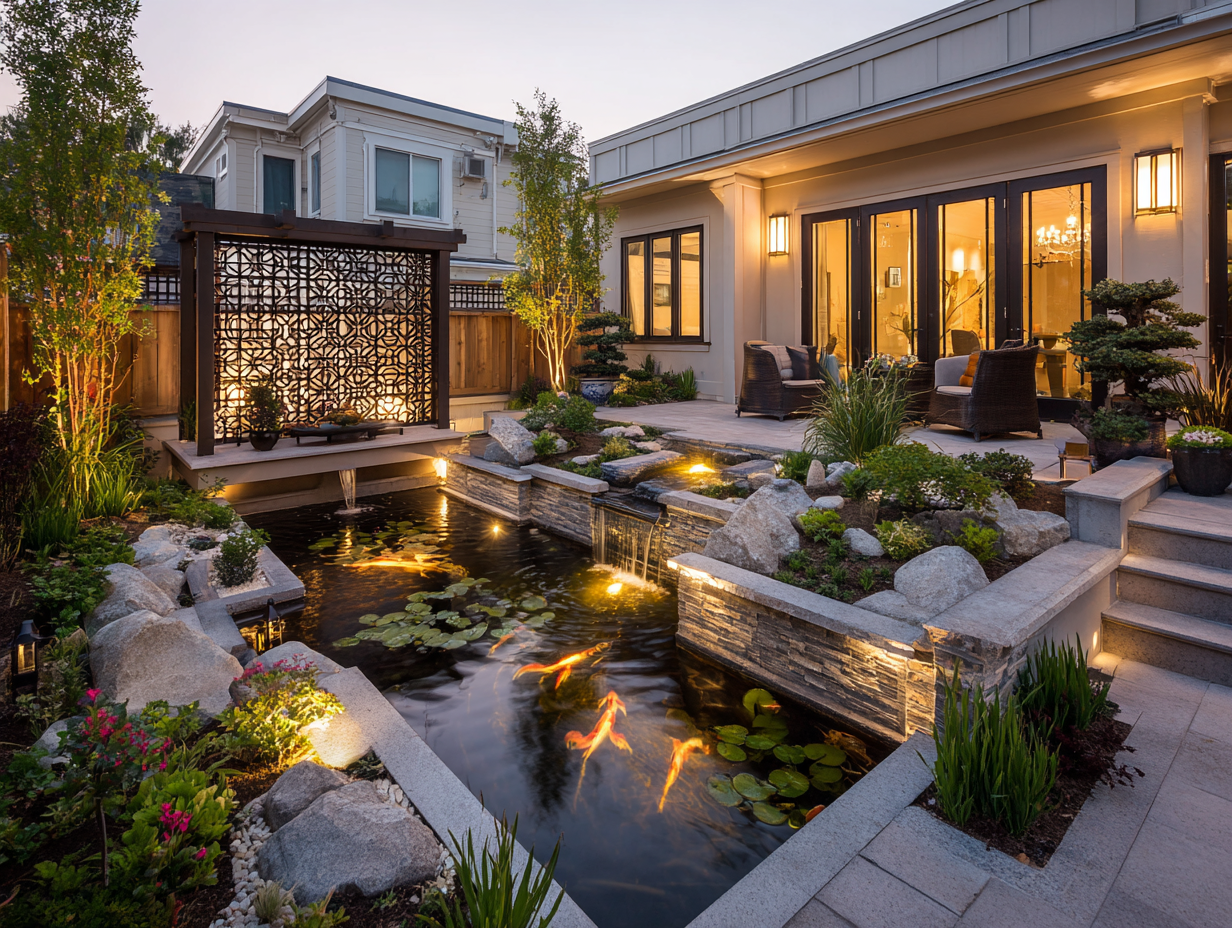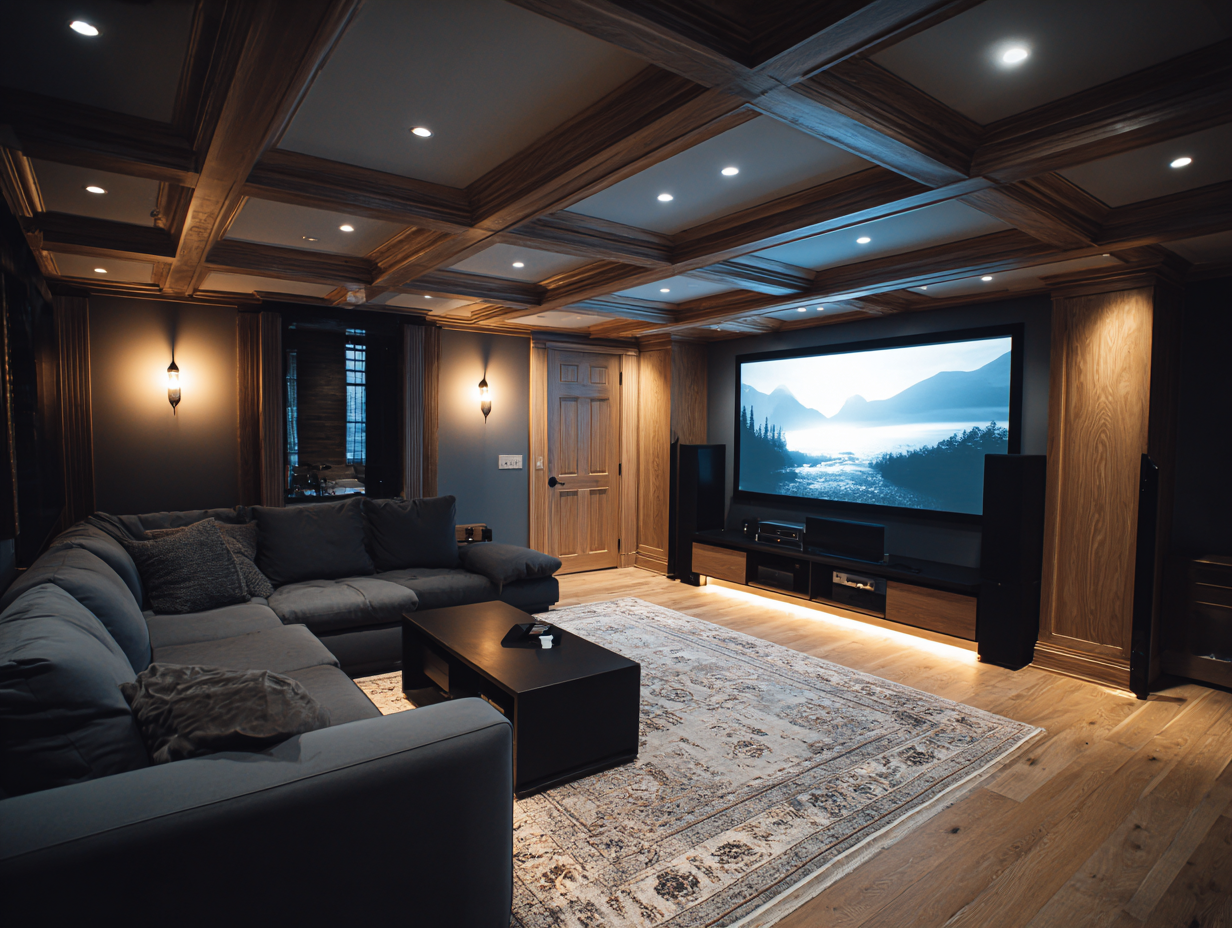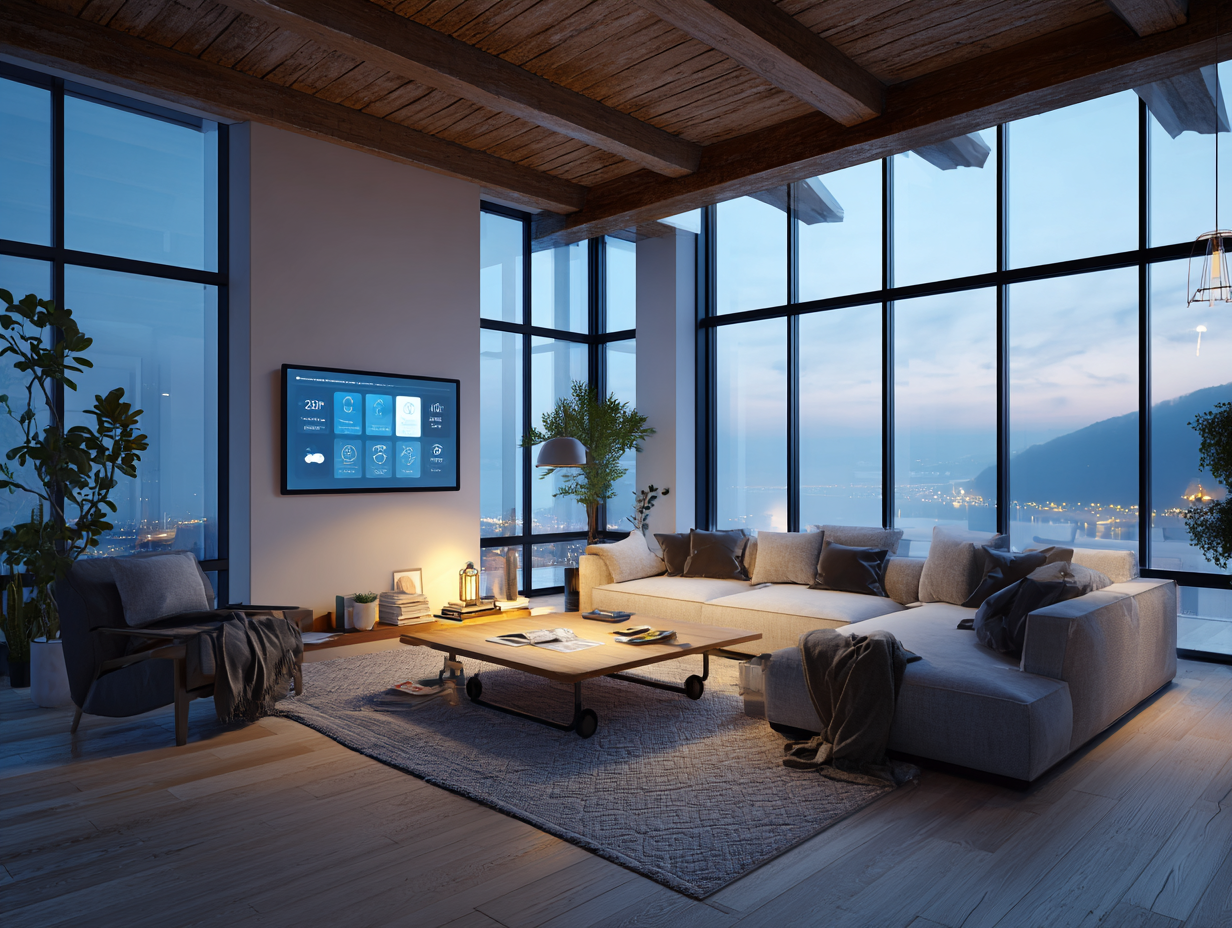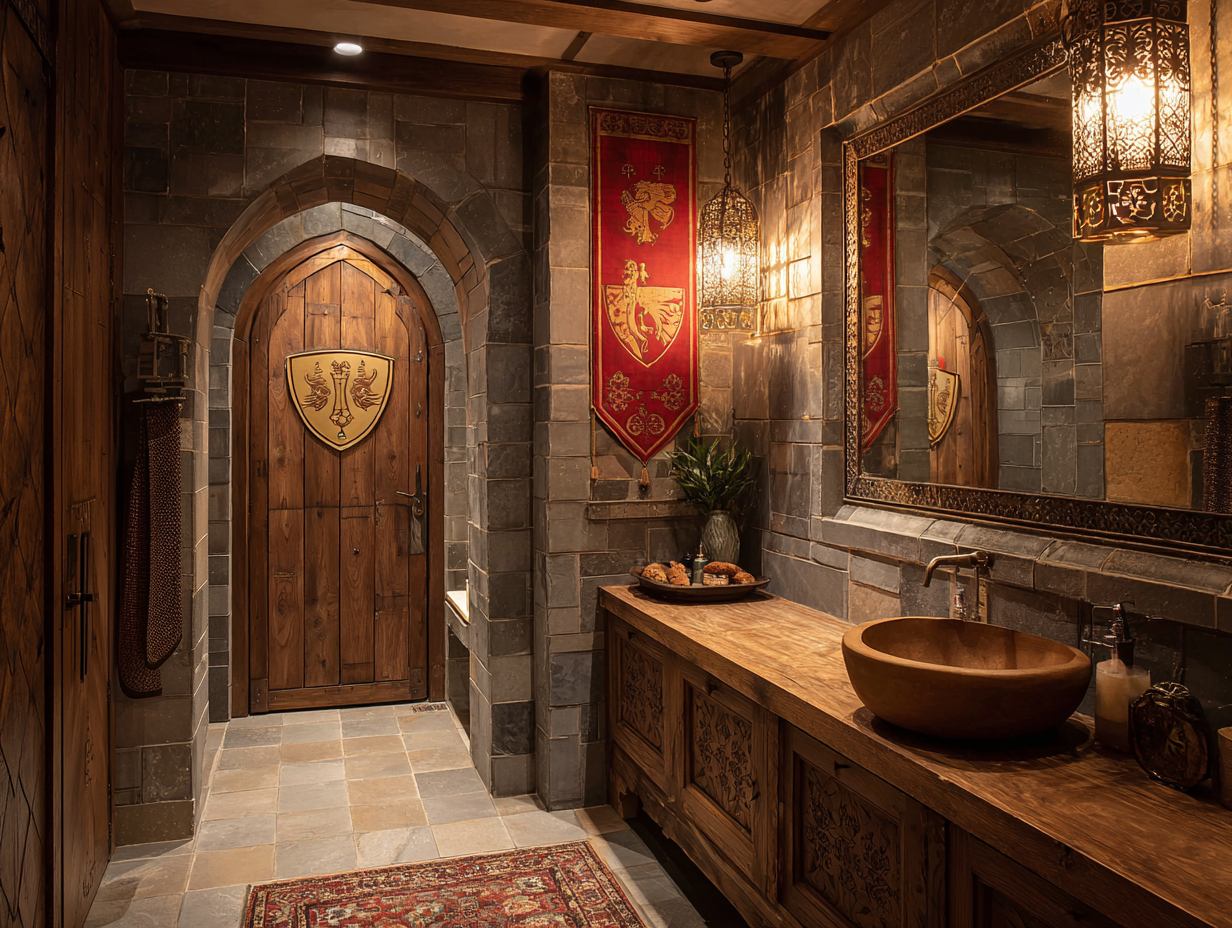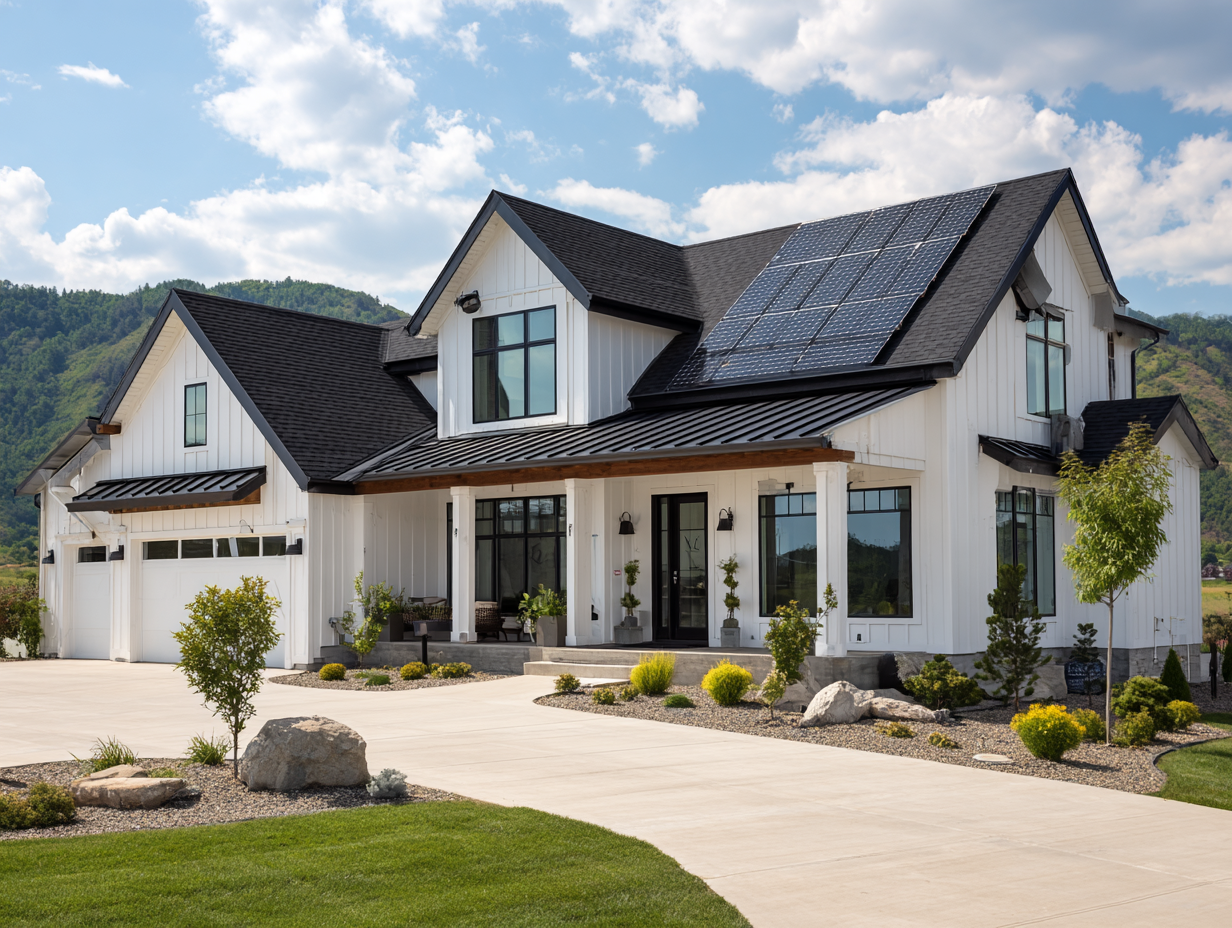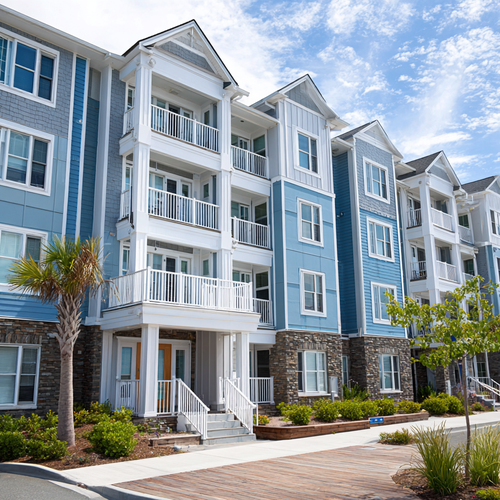When it comes to getting a home ready for sale—or just making it more enjoyable to live in—renovations can feel like the ultimate power move. After all, who doesn’t love a brand-new kitchen, a spa-like bathroom, or sleek new flooring? But here’s the real estate truth that’s not as fun as shopping at the tile store: not all upgrades are created equal.
In fact, some home renovations can actually make it harder to sell your house or reduce your return on investment (ROI). Why? Because they’re either over-personalized, unnecessary for your market, or so high-end that buyers won’t pay extra for them.
If you’re thinking of remodeling with resale in mind—or just want to avoid making costly missteps—here’s your guide to renovations that don’t add value, and how to make smarter choices instead.
1. Over-Customized Luxury Kitchens
A beautiful, updated kitchen can absolutely help a home sell faster and sometimes even for more money—but there’s a limit. Once you start adding commercial-grade appliances, wine walls, pot fillers, or imported Italian marble countertops that cost more than a used car, your ROI starts to dwindle.
Why it doesn’t add value: Most buyers are looking for function and style, not the same features a chef in a Michelin-star restaurant needs. Ultra-custom kitchens might appeal to a niche market, but for the average buyer, those expensive extras won’t translate into more money at the closing table.
Smarter alternative: Focus on clean, neutral finishes with broad appeal. Quartz countertops, white or light-colored cabinets, updated lighting, and a modern backsplash can go a long way—without blowing your budget.
2. High-End Bathroom Additions with Spa Features
Jetted tubs, heated towel racks, steam showers, and smart toilets sound indulgent—and they are. But in most cases, you’re not going to get back what you put into them. Plus, some of these features require additional plumbing, electrical, and space modifications, which drive up the cost without increasing your home's market value.
Why it doesn’t add value: Luxury bathroom upgrades are subjective. Some buyers might love that chromotherapy shower head, while others just see extra maintenance and energy costs. And while updated bathrooms do help with resale, there’s a point of diminishing returns.
Smarter alternative: Instead of going full spa-mode, upgrade bathrooms with new vanities, lighting, tile, and fixtures. A sleek walk-in shower or updated tub surround often offers better value than high-end gadgets.
3. Converting a Bedroom into a Specialized Space
Homeowners sometimes convert a spare bedroom into a home gym, walk-in closet, wine cellar, or office with built-in cabinetry. While this might suit your lifestyle perfectly, it can backfire when it’s time to sell.
Why it doesn’t add value: Buyers often shop based on the number of bedrooms. If you’ve removed a closet to create a gym or decked the walls with custom shelving for your dream library, buyers may not see it as a bedroom anymore—and that can lower perceived value.
Smarter alternative: If you need a functional office or gym, try a non-permanent setup. Use stylish furniture instead of built-ins, keep closets intact, and stage the room neutrally when selling. That way, it’s easy for buyers to imagine their own use for the space.
4. Swimming Pools (Especially in the Wrong Market)
Pools are the ultimate status symbol in some areas, but in others, they’re more of a liability than a luxury. In fact, adding a pool can cost $50,000 to $100,000 or more, yet rarely offers more than a 30%–50% return—if that.
Why it doesn’t add value: Pools require ongoing maintenance, can be a safety hazard for families with young children, and can limit yard space. In temperate regions like coastal North Carolina, some buyers may see it as a perk, but it’s far from a must-have, especially if there's a community pool.
Smarter alternative: If your property is pool-appropriate and you’ll enjoy it for years to come, go for it—but don’t add one just for resale. Instead, create a beautiful outdoor entertaining area with a patio, fire pit, or outdoor kitchen, which often offers broader appeal.
5. Garage Conversions
It’s tempting to turn that two-car garage into a playroom, guest suite, or man cave—especially if you need the extra space. But in doing so, you might be subtracting a feature that many buyers see as essential.
Why it doesn’t add value: Most buyers—especially in suburban and Southern markets—want a garage for parking, storage, or workshop use. Losing that space to add living area can be a net negative when it’s time to sell.
Smarter alternative: If you need more living space, consider a detached garage with a bonus suite, or an attic/basement renovation if your home has one. If you do convert your garage, make sure it can be easily converted back.
6. Elaborate Landscaping and Water Features
A beautifully landscaped yard adds curb appeal, no doubt. But when you start adding koi ponds, elaborate stonework, tiered gardens, or outdoor lighting systems that require a manual to operate, you might be hurting your resale more than helping.
Why it doesn’t add value: Landscaping is subjective, and high-maintenance yards can scare off buyers who don’t have the time, money, or interest to maintain them. Additionally, elaborate landscaping rarely recoups more than 30–40% of the cost.
Smarter alternative: Go for clean, simple, and low-maintenance. Native plants, mulch beds, a healthy lawn, and a few flowering shrubs or trees can boost curb appeal without intimidating potential buyers.
7. Home Theaters or Soundproof Rooms
Dedicated home theaters with soundproofing, risers, and dark walls may be your dream setup for movie nights—but they often alienate buyers who’d prefer that space be used for something else. Unless you’re in a high-end luxury market where home theaters are expected, it’s typically not a profitable upgrade.
Why it doesn’t add value: Specialized rooms limit flexibility. Buyers want to envision how a space can serve their needs. A dark, windowless room with a projector and permanent seating may not spark their imagination—or add to your listing price.
Smarter alternative: If you want a media room, set it up with temporary furniture and removable tech. When it’s time to sell, stage the room as a den, playroom, or bonus room to keep your buyer pool wide.
8. Over-the-Top Smart Home Systems
Smart home upgrades are on the rise—thermostats, video doorbells, and security systems can be a solid investment. But if you’re wiring your entire home with custom lighting scenes, voice-activated blinds, climate zones, and central control panels that require tech-savvy training, you’re entering low-ROI territory.
Why it doesn’t add value: Buyers may be impressed during a tour, but they often don’t want to inherit a system that feels complicated or requires constant updates. Worse, some advanced systems quickly become obsolete, costing you more to maintain or replace.
Smarter alternative: Stick with a few well-chosen smart features with wide user appeal—like a Nest thermostat or Ring doorbell. These are familiar, relatively inexpensive, and easy to replace or upgrade.
9. Ultra-Personal Design Choices
That hand-painted mural in the foyer? The bright orange kitchen cabinets? The medieval knight-themed guest bathroom? While creative expression is important, highly personal design choices rarely help with resale—and may even turn buyers off.
Why it doesn’t add value: Buyers are trying to envision themselves in the space. When a home is too heavily branded with someone else’s personality, it’s harder for them to mentally move in.
Smarter alternative: Keep major elements like flooring, cabinetry, countertops, and walls in neutral tones and classic materials. Save bold colors and themes for things that are easy to change—like pillows, art, or removable wallpaper.
10. Solar Panels (In Some Markets)
While solar panels can be great for reducing utility bills and environmental impact, they don’t always add to your home’s value—especially if they’re leased, aging, or poorly installed.
Why it doesn’t add value: In some regions, buyers may be hesitant to take on a solar panel lease or may not fully understand the benefits. Additionally, older systems may be less efficient or near the end of their lifespan, creating more questions than appeal.
Smarter alternative: If you’re planning to stay in the home for many years, solar can be a good long-term investment. But if resale is on the horizon, be sure to research how solar is valued in your market—and be ready to educate potential buyers on how it works.
Final Thoughts: Upgrade Smart, Not Just Fancy
When it comes to improving your home, it’s not about how much you spend—it’s about how wisely you spend it. The best renovations are the ones that strike a balance between personal enjoyment and market appeal. If you're planning to sell within the next few years, always consider how potential buyers will view the upgrade. Talk to your real estate agent before you start knocking down walls or importing marble from Spain. A good agent can help you identify which projects will give you the best return—and which ones to skip.

